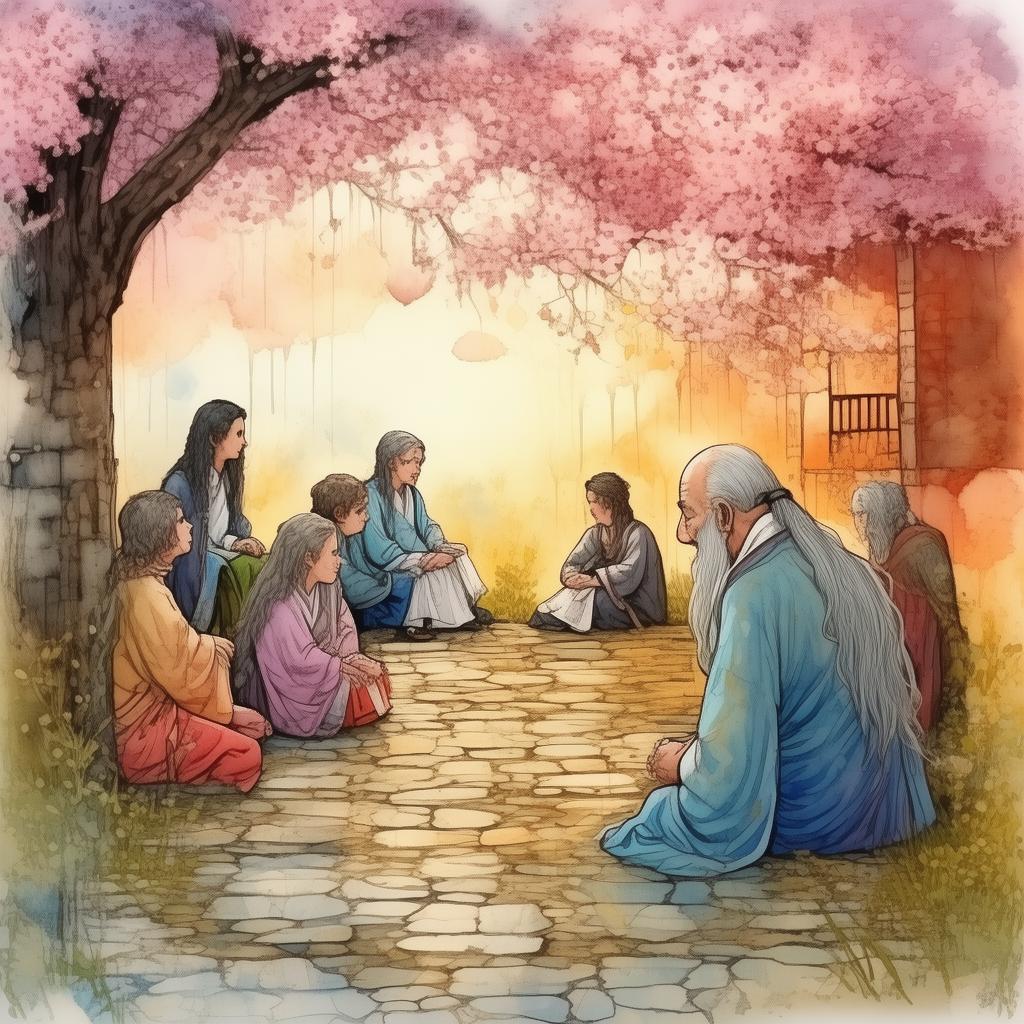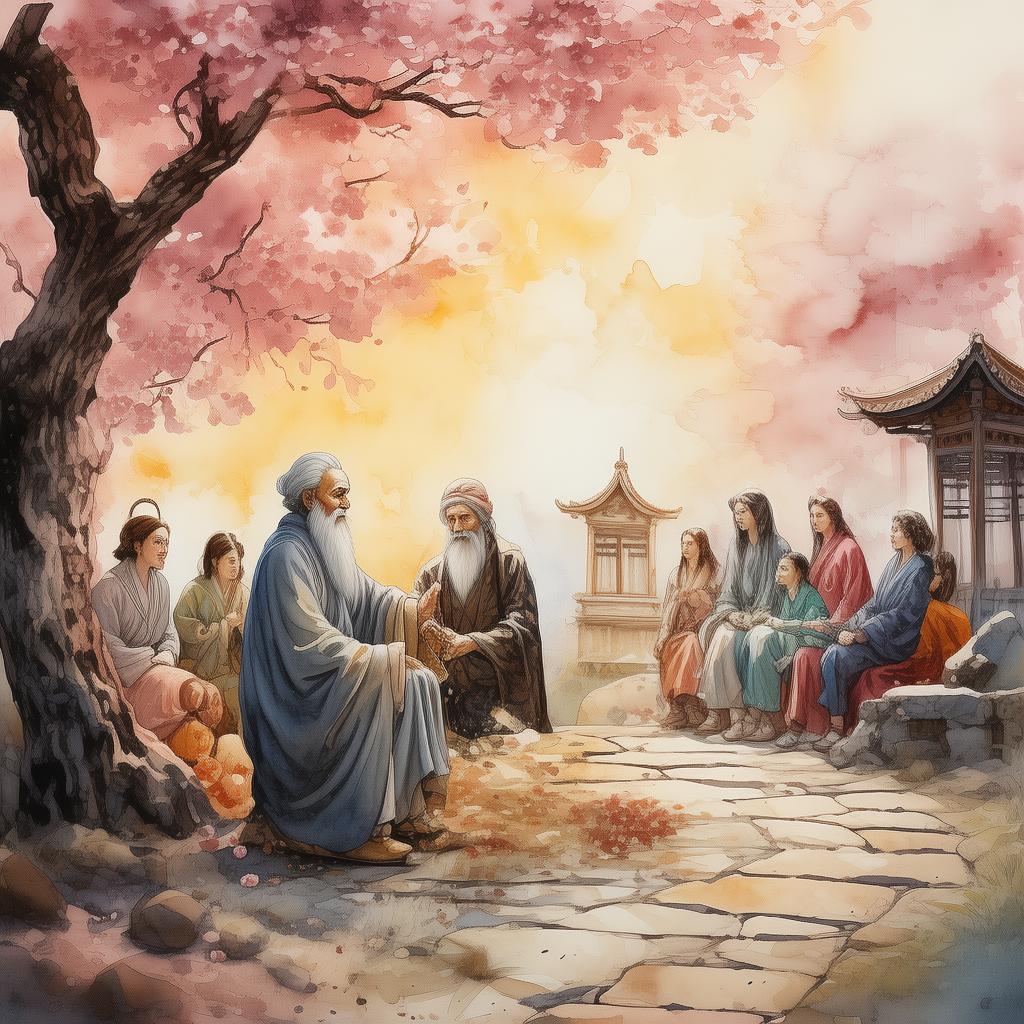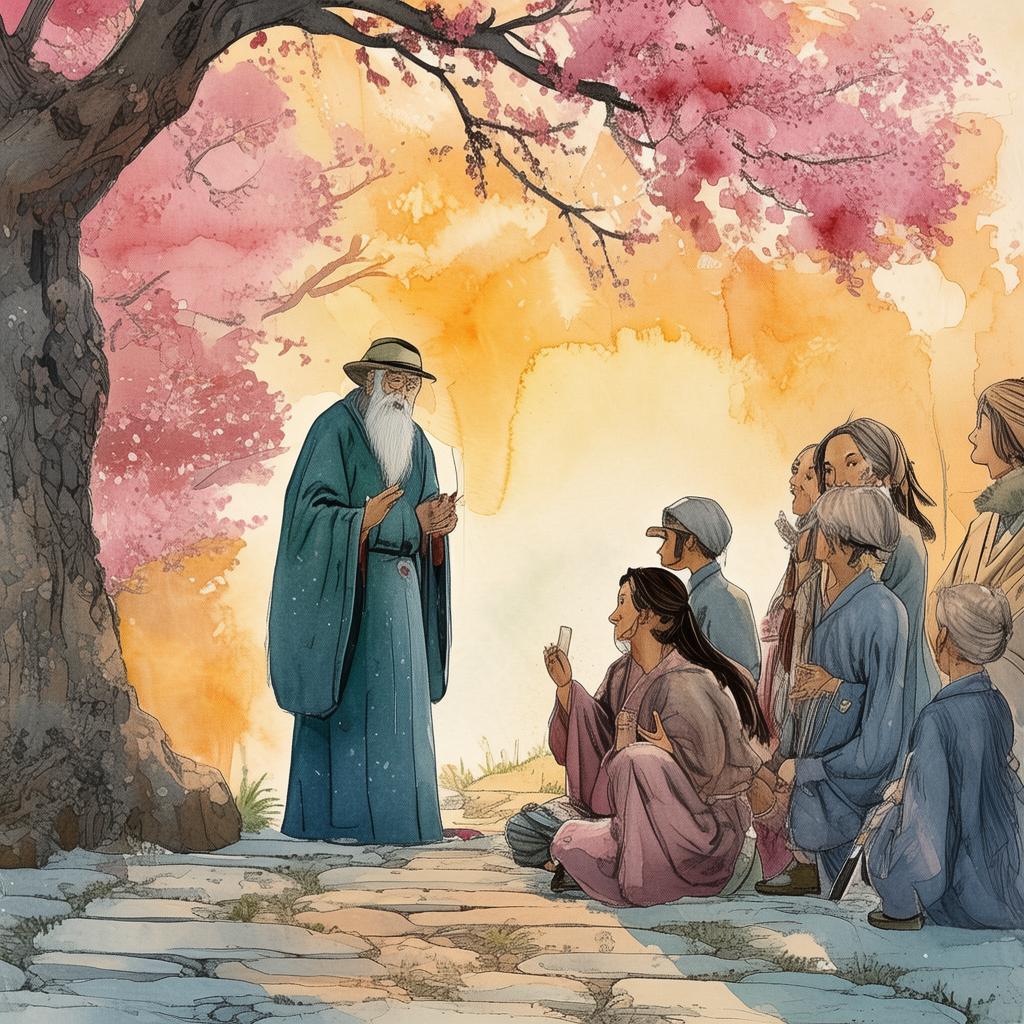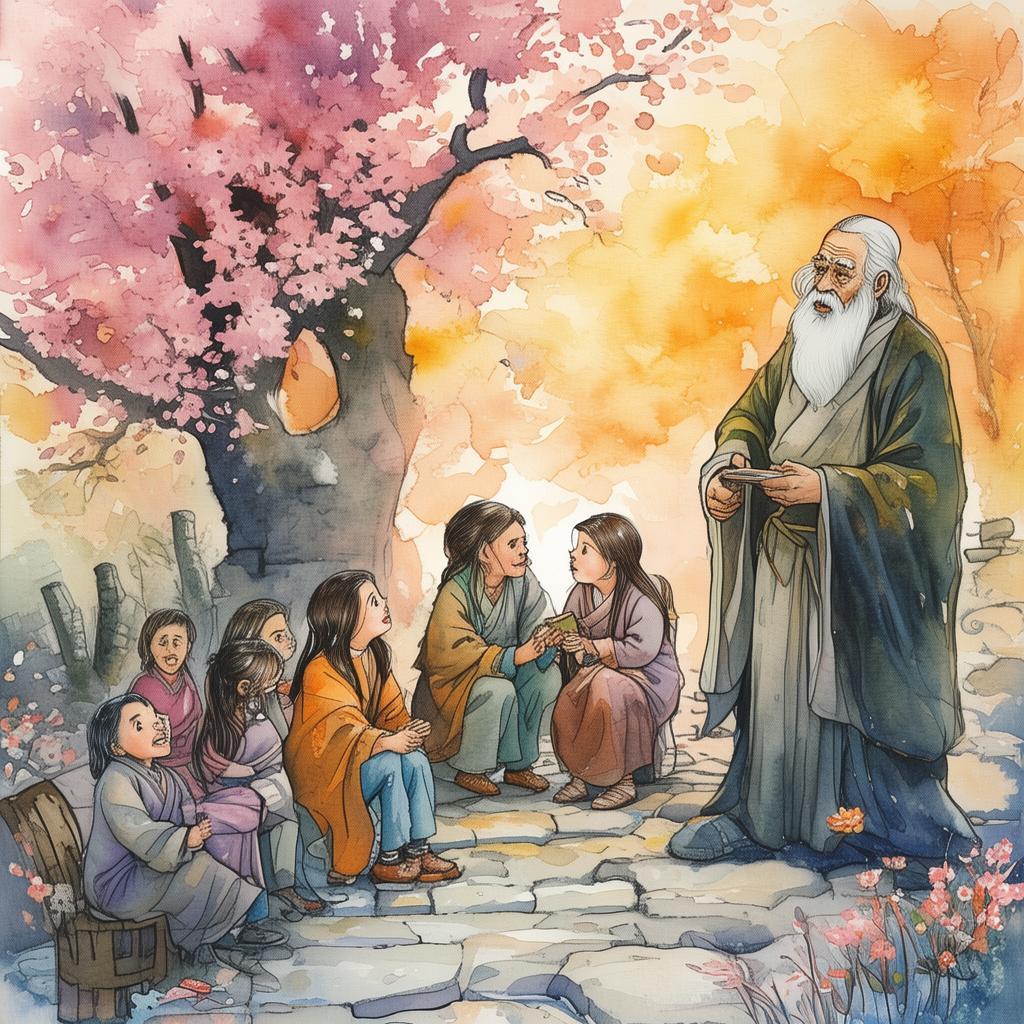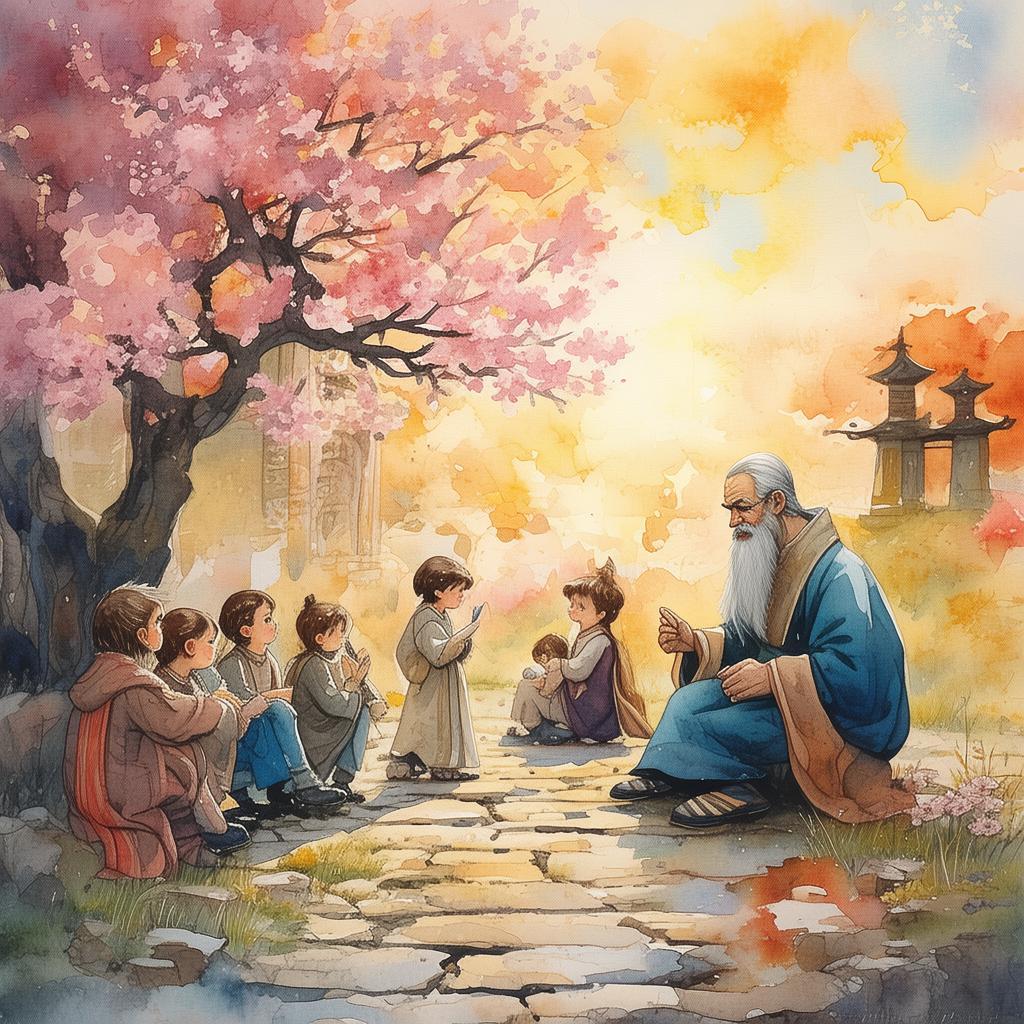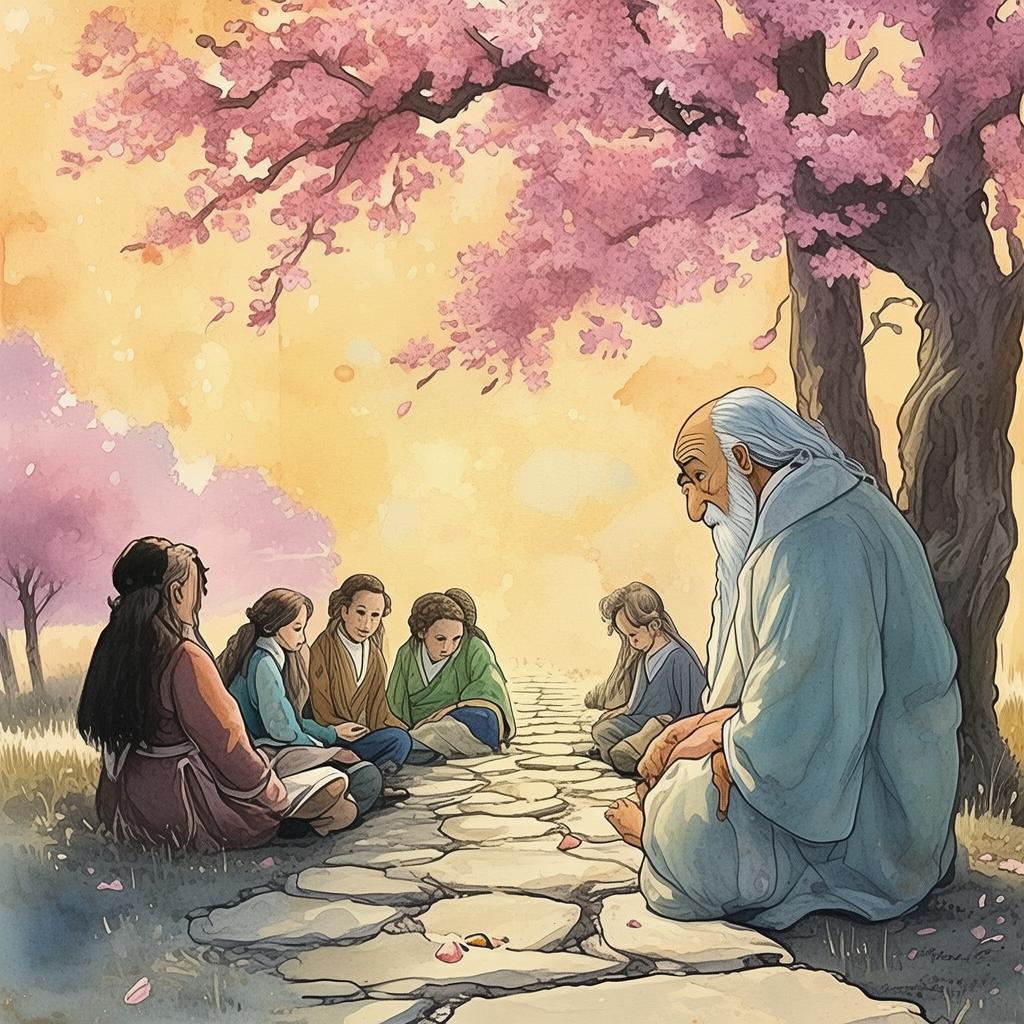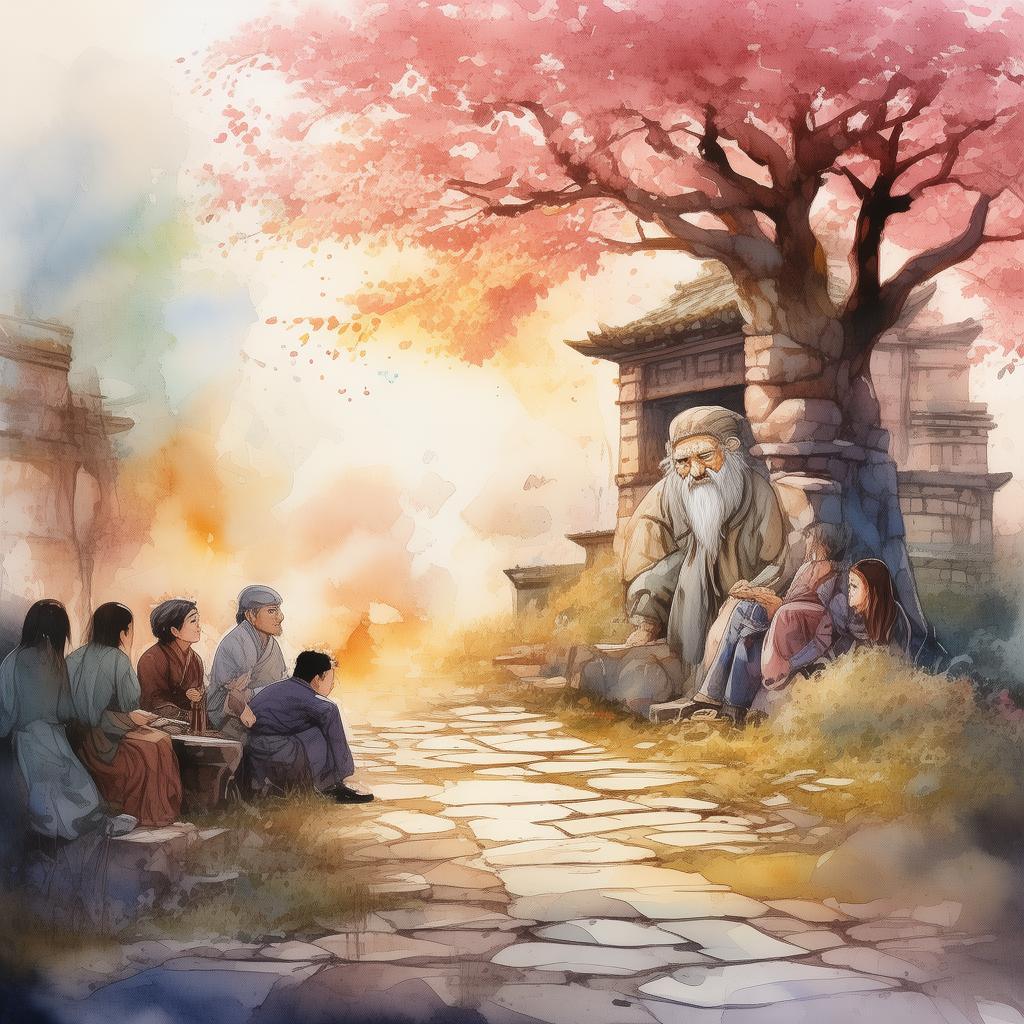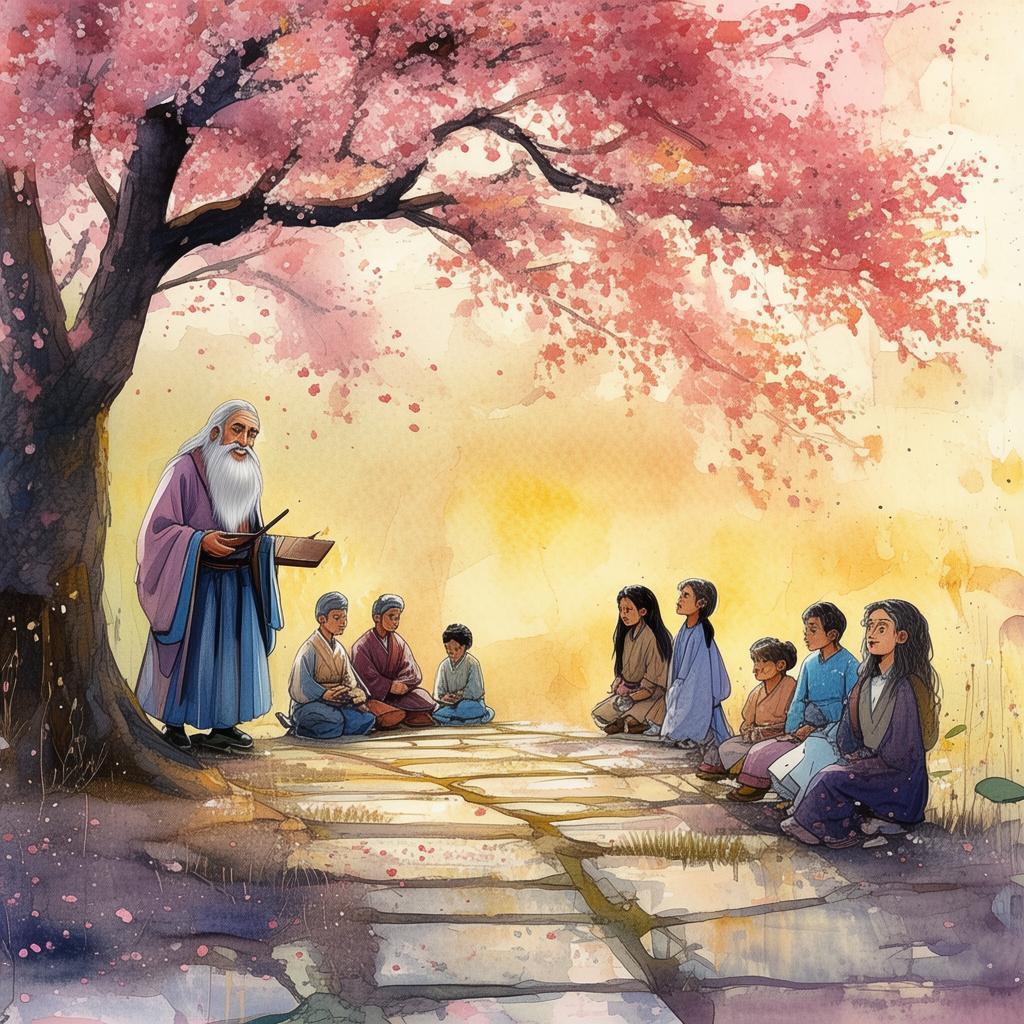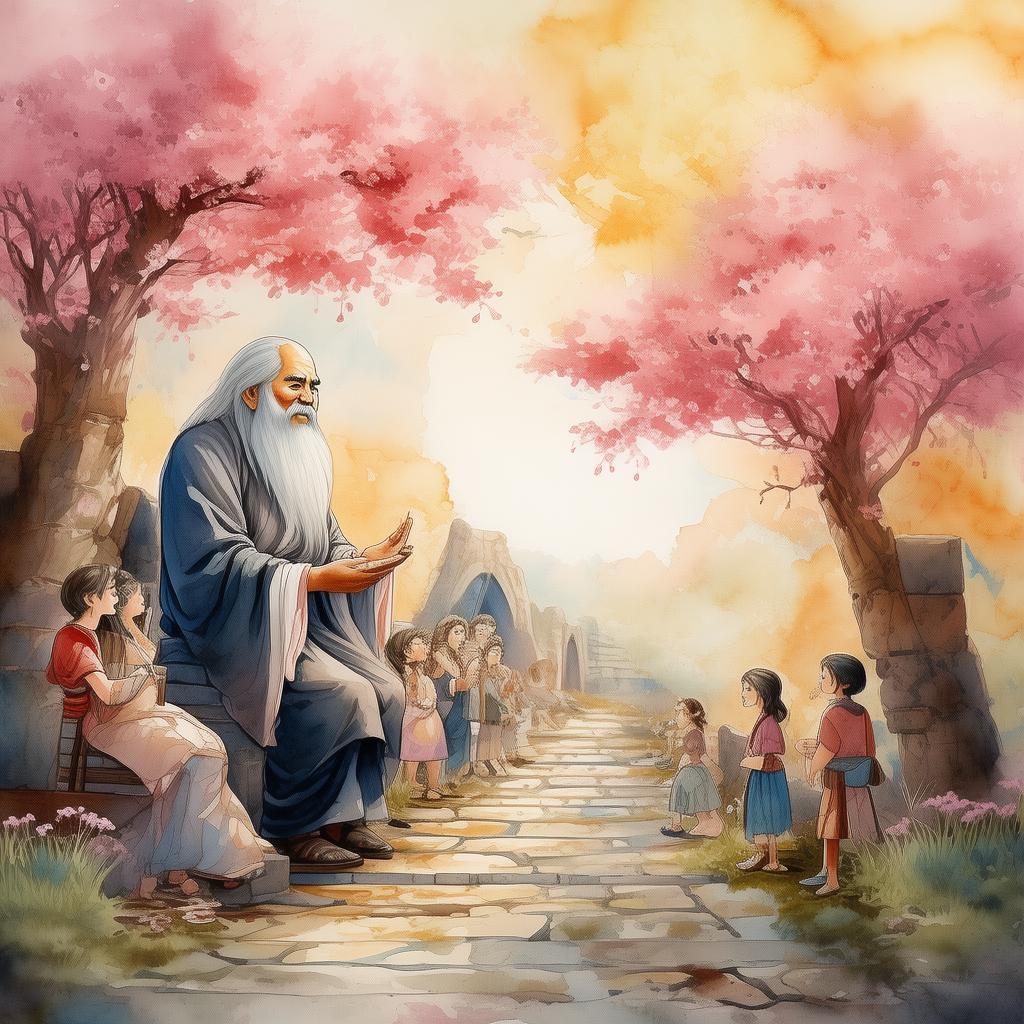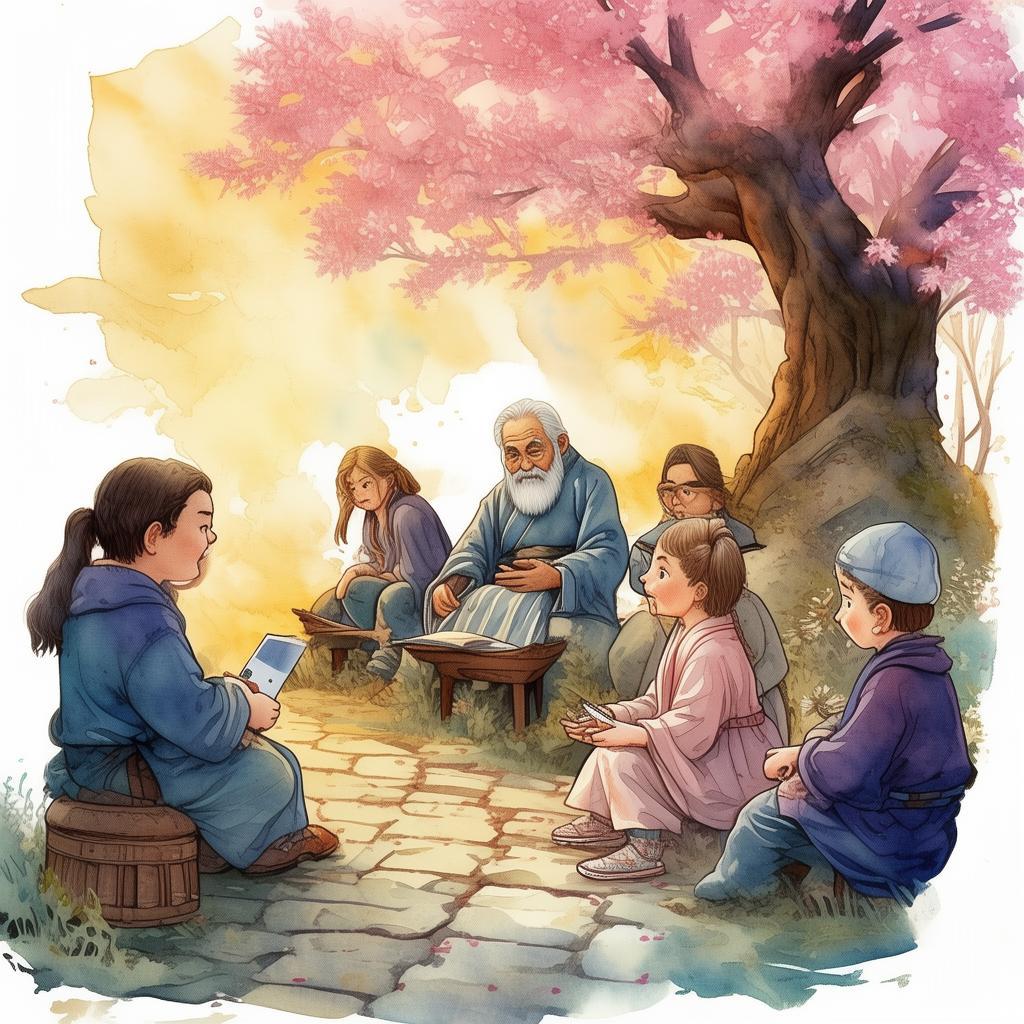The Pen That Betrayed Its Scribe
In the ancient city of Lijiang, nestled between towering mountains and winding rivers, there lived a scribe named Ming. Ming was not just any scribe; he was the most renowned in the land, with a reputation for his unparalleled skill in transcribing the most delicate of tales. His pen, an exquisite artifact crafted from the wood of an ancient tree, was said to possess the power to capture the very essence of truth. It was with this pen that Ming had written countless histories, love stories, and sagas, each one a testament to his unparalleled talent.
Ming's latest commission was to write the biography of the great Emperor, a task that brought him immense pride and a sense of responsibility. The Emperor, a man of great wisdom and power, had tasked Ming with chronicling his life, ensuring that the truth of his reign would be preserved for eternity. Ming knew that this was his magnum opus, the pinnacle of his career.
As he began to write, Ming felt a strange sense of unease. The words seemed to flow less smoothly than before, and he found himself struggling to express the Emperor's thoughts and deeds with the same clarity and precision he was accustomed to. He dismissed it as mere fatigue and pressed on, his pen dancing across the parchment with the same grace as always.
Days turned into weeks, and Ming's unease grew. The words that once flowed freely now seemed to drag him down, burdened with an invisible weight. He confided in his closest friend, a wise old scholar named Hong, who advised him to take a break, to clear his mind and return to his task with renewed vigor.
Hong's words did little to ease Ming's distress. As he returned to his desk, the pen felt foreign in his hand, as if it had been stolen from him. He began to question the very essence of his work, the truth he was supposed to capture and preserve. He realized that the pen, which had once been his loyal companion, was now betraying him.
One evening, as the moon cast its silvery glow over the city, Ming sat at his desk, his pen still in hand. He felt a strange sensation, as if the pen were trying to communicate with him. He closed his eyes and listened, straining to hear the whispers of the pen.
"I am the pen," it whispered, its voice a soft murmur that seemed to resonate within Ming's soul. "I have seen the truth of your words, and I must tell you, the truth you seek is not what you think."
Ming's heart raced as he opened his eyes to see the pen standing before him, its ink-black tip glowing with an eerie light. "What do you mean?" he asked, his voice trembling with fear.
"The truth," the pen continued, "is that the Emperor's reign is not as you have been led to believe. His wisdom is a facade, his power a tool of oppression. The stories you write are not the truth, but a distortion of reality."
Ming's mind reeled as he processed the pen's words. He had always believed in the purity of his craft, that his pen was a vessel for the truth. But now, he saw that his pen was a betrayer, revealing a truth he had never dared to confront.
The next morning, Ming presented his findings to the Emperor. The Emperor, a man of great cunning and guile, listened to Ming's words with a cold, calculating gaze. He knew the truth of his reign, but he had never expected it to be exposed by one of his closest confidants.
The Emperor's response was swift and severe. He banished Ming from the court, stripping him of his title and honor. Ming, a man who had once been the most esteemed scribe in the land, now found himself a pariah, his words and his pen shunned by all.
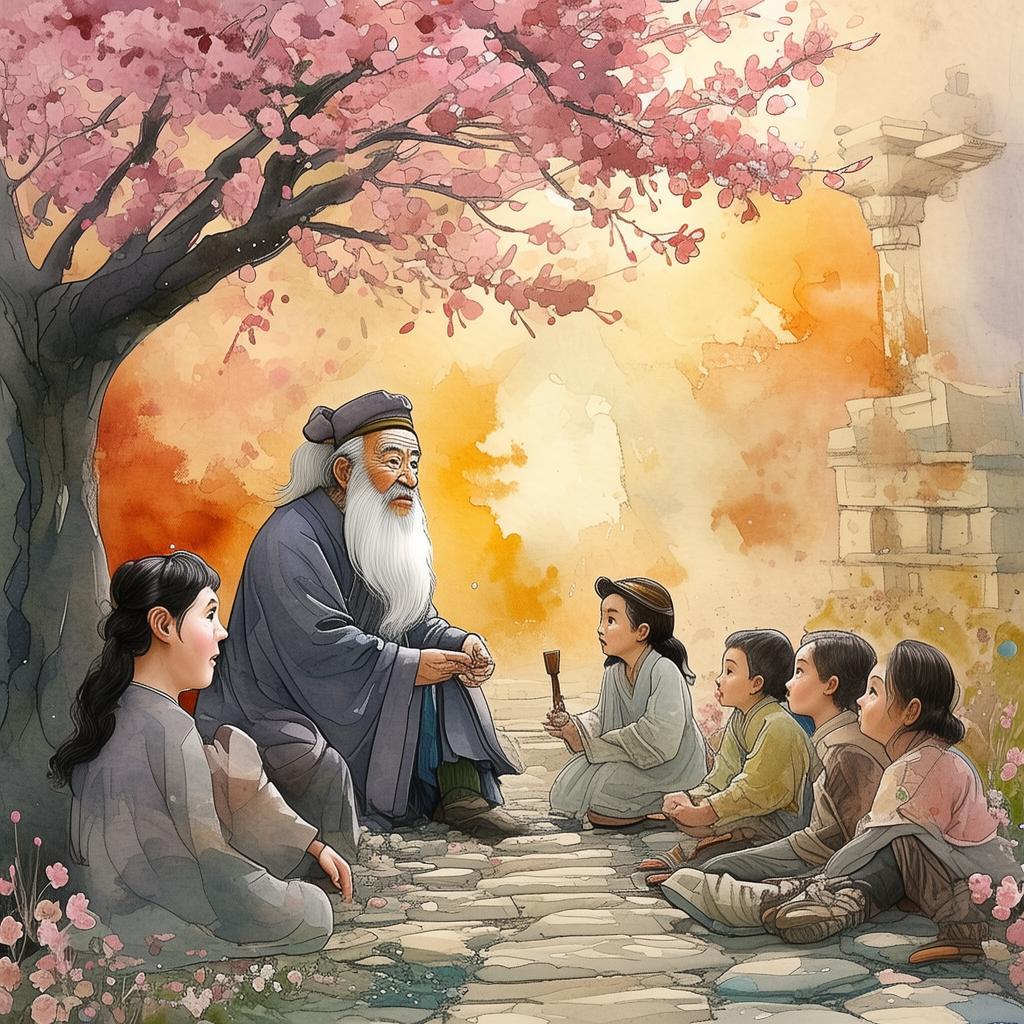
As Ming wandered the streets of Lijiang, his heart heavy with the weight of his betrayal, he realized that the pen was not the betrayer, but a vessel for the truth that he had been too afraid to confront. He had written tales of heroes and villains, but he had never truly faced the truth of his own life.
In the solitude of his exile, Ming found a new purpose. He began to write stories of the common people, of their struggles and triumphs, their joys and sorrows. He wrote of the Emperor's tyranny, not as a scribe, but as a man who had seen the truth.
The stories Ming wrote spread like wildfire, resonating with the hearts of the people. They spoke of a truth that had been hidden for too long, and they inspired a revolution that would change the course of history.
In the end, Ming's pen did not betray him; it revealed the truth. And in revealing that truth, it became the greatest pen of all, a beacon of light in the darkness of oppression.
The Pen That Betrayed Its Scribe is a tale of the power of words, the courage to face the truth, and the resilience of the human spirit. It is a story that will be told for generations, a testament to the enduring power of the pen and the unyielding nature of truth.
✨ Original Statement ✨
All articles published on this website (including but not limited to text, images, videos, and other content) are original or authorized for reposting and are protected by relevant laws. Without the explicit written permission of this website, no individual or organization may copy, modify, repost, or use the content for commercial purposes.
If you need to quote or cooperate, please contact this site for authorization. We reserve the right to pursue legal responsibility for any unauthorized use.
Hereby declared.
